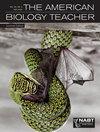透过集邮进行科学传播
IF 0.3
4区 教育学
Q4 BIOLOGY
引用次数: 1
摘要
世界范围内的鹦鹉螺和菊石:头足类动物的世界及其在集邮上的反映。作者:汉斯·乌尔里希·恩斯特和克里斯蒂安·克鲁格,2011。Friedrich Pfeil博士,慕尼黑,德国。(ISBN 9783899371291)。双语(德语和英语)。224页,精装版。38.50美元。在《集邮的思考》系列丛书中,弗里德里希·普菲尔(德国)出版了以鹦鹉螺和菊石为主题的第二期。八年前,汉斯·乌尔里希·恩斯特出版了以三叶虫为主题的第一期丛书。恩斯特是一位热心的古生物邮票收藏家,两期丛书的共同作者。本书的合著者克里斯蒂安·克鲁格博士是苏黎世大学古生物研究所和博物馆的古生物学专家。化石和邮票都是珍贵的博物馆藏品。前者记录自然历史,后者记录国家历史和资源。两者都有可能记录科学史,因此在科学传播中发挥重要作用。邮票可以传递信息,传播科学信息,向大众传播科学文化。以科学为基础的邮票有助于提高邮票的潜力,使其从简单的“收集材料”发展成为有价值的信息来源。邮票是一种独特的科学传播媒介,也是一种很好的教学辅助工具。利用邮票的意象作为讲故事的人,作者相互补充,呈现了一个吸引人的化石邮票和邮戳的汇编散落在书中。…本文章由计算机程序翻译,如有差异,请以英文原文为准。
Science Communication through Philately
Nautilids and Ammonites Worldwide: The World of Cephalopods and Their Reflection in Philately. By Hans Ulrich Ernst and Christian Klug. 2011. Verlag Dr Friedrich Pfeil, Munich, Germany. (ISBN 9783899371291). Bilingual (German and English). 224 pp. Hardcover. $38.50. In the series Reflection in Philately , Friedrich Pfeil (Germany) has published the second issue on Nautilids and Ammonites eight years after the first on Trilobites by Hans Ulrich Ernst, an avid collector of paleontological stamps and the common author in both issues. Dr. Christian Klug, the coauthor of this book, is a paleontological expert from the Paleontological Institute and Museum, University of Zurich. Both fossils and stamps are valued museum objects. The first record natural history, while the second record national history and resources. Both have the potential to record science history and, thus, play significant roles in science communication. A postage stamp can communicate a message, disseminate science information, and propagate science culture to the masses. Science-based stamps help to increase the potential of postage stamps beyond simple “collection materials” to valued sources of information. A postage stamp is a unique medium for science communication and can be a good teaching and learning aid. Utilizating postage stamp imagery as storyteller, the authors complement one another and present an appealing compilation of fossil stamps and postmarks scattered throughout the book. …
求助全文
通过发布文献求助,成功后即可免费获取论文全文。
去求助
来源期刊

American Biology Teacher
BIOLOGY-EDUCATION, SCIENTIFIC DISCIPLINES
CiteScore
0.80
自引率
20.00%
发文量
108
期刊介绍:
The American Biology Teacher is an award winning and peer-refereed professional journal for K-16 biology teachers. Articles include topics such as modern biology content, biology teaching strategies for both the classroom and laboratory, field activities, and a wide range of assistance for application and professional development. Each issue features reviews of books, classroom technology products, and "Biology Today." Published 9 times a year, the journal also covers the social and ethical implications of biology and ways to incorporate such concerns into instructional programs.
 求助内容:
求助内容: 应助结果提醒方式:
应助结果提醒方式:


